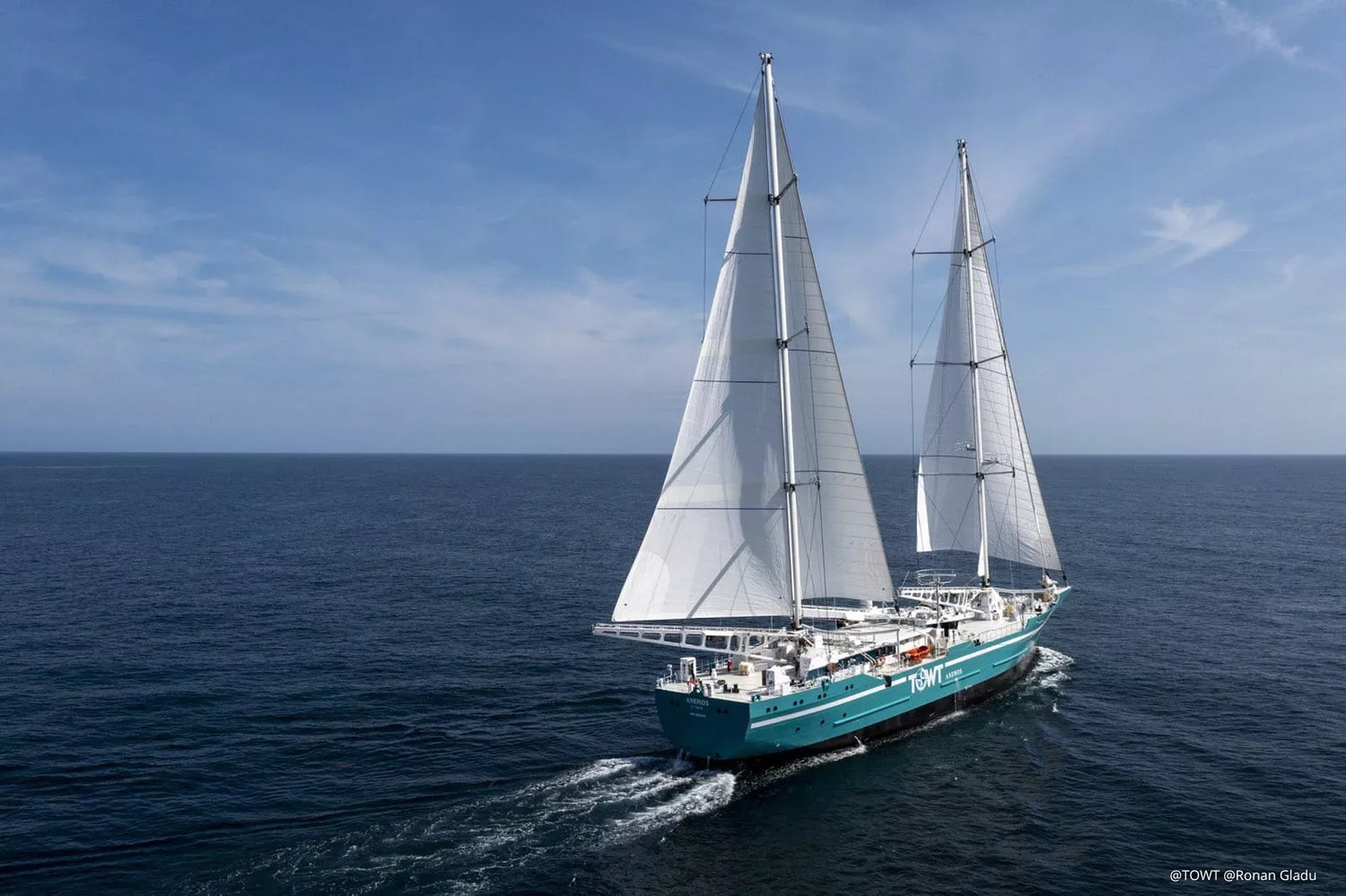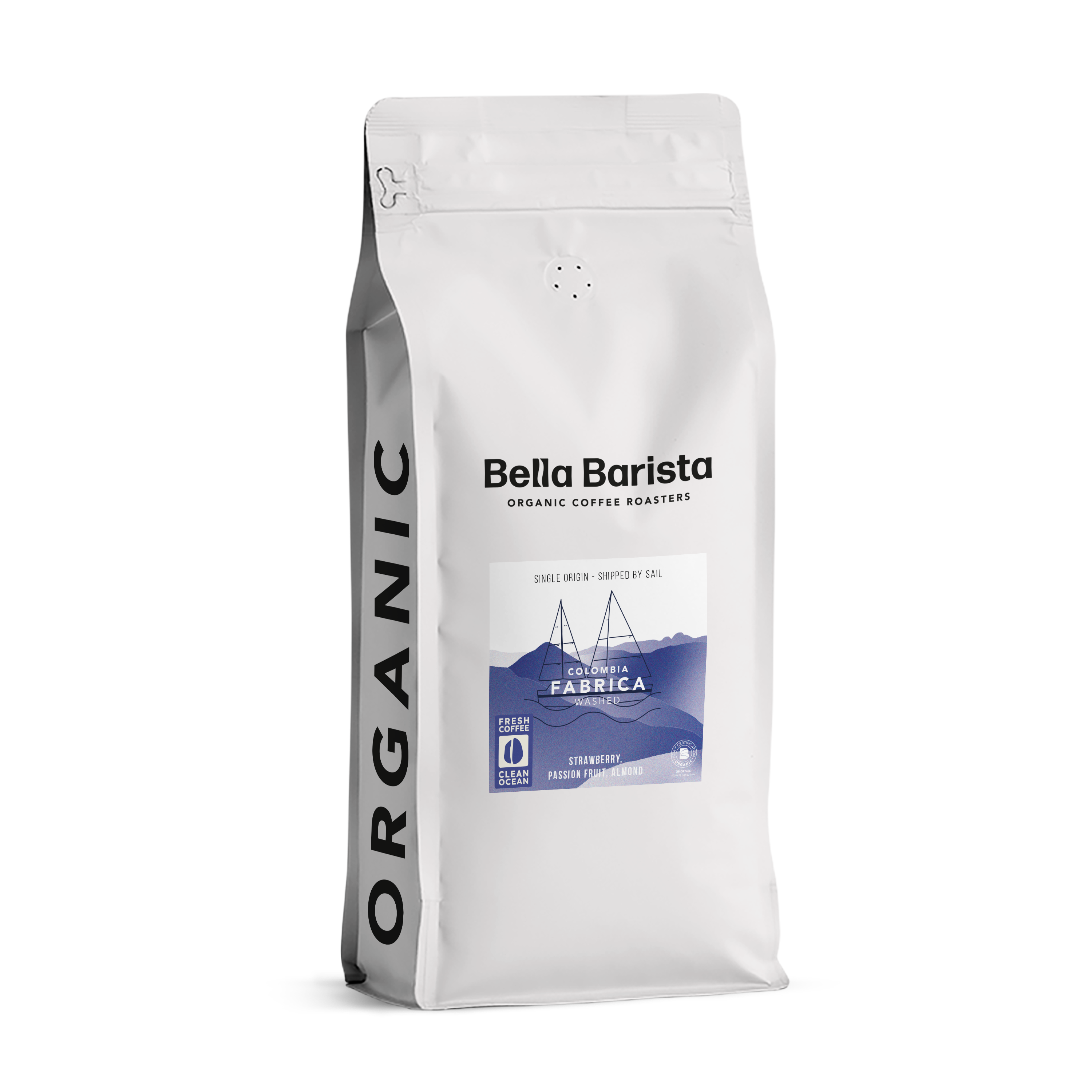
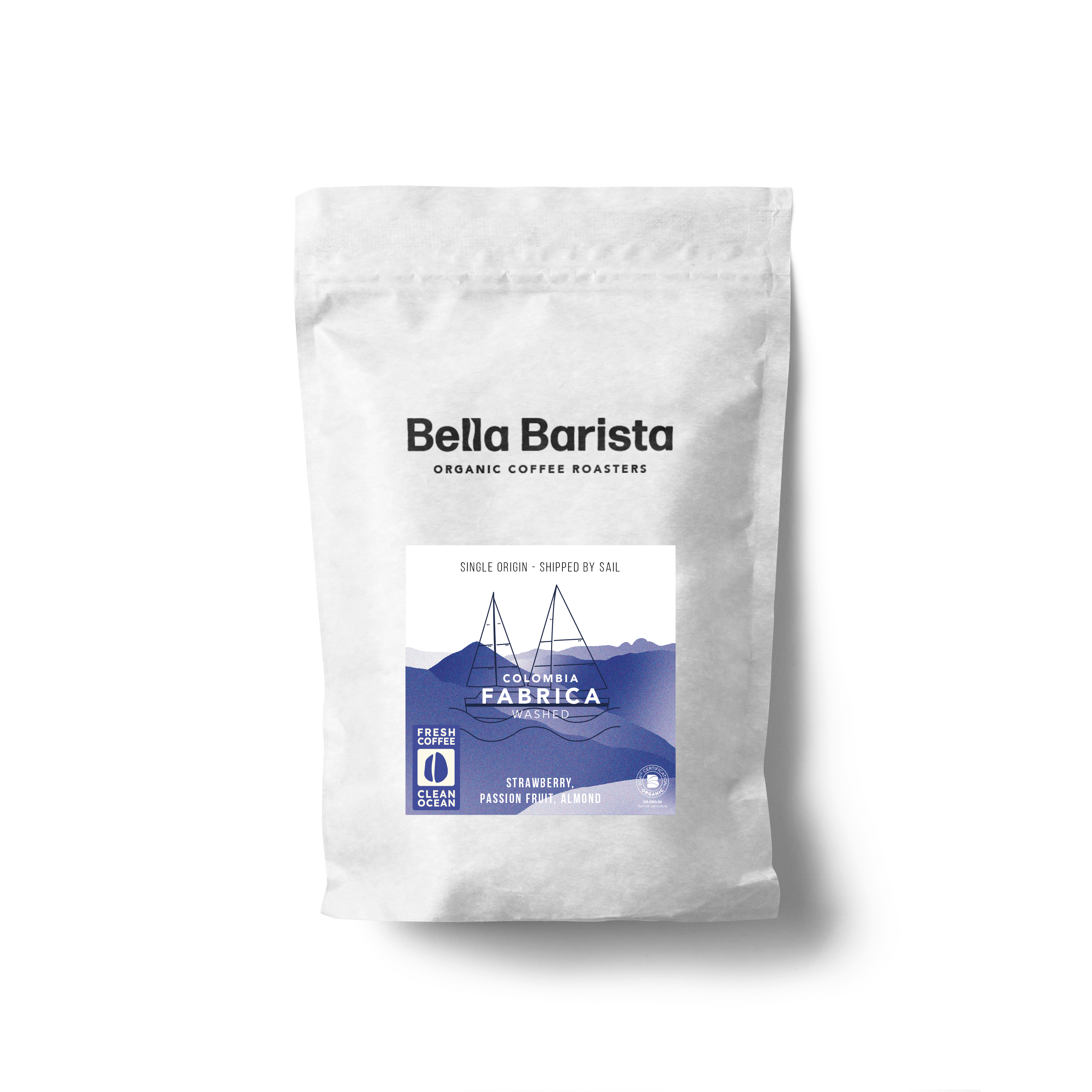
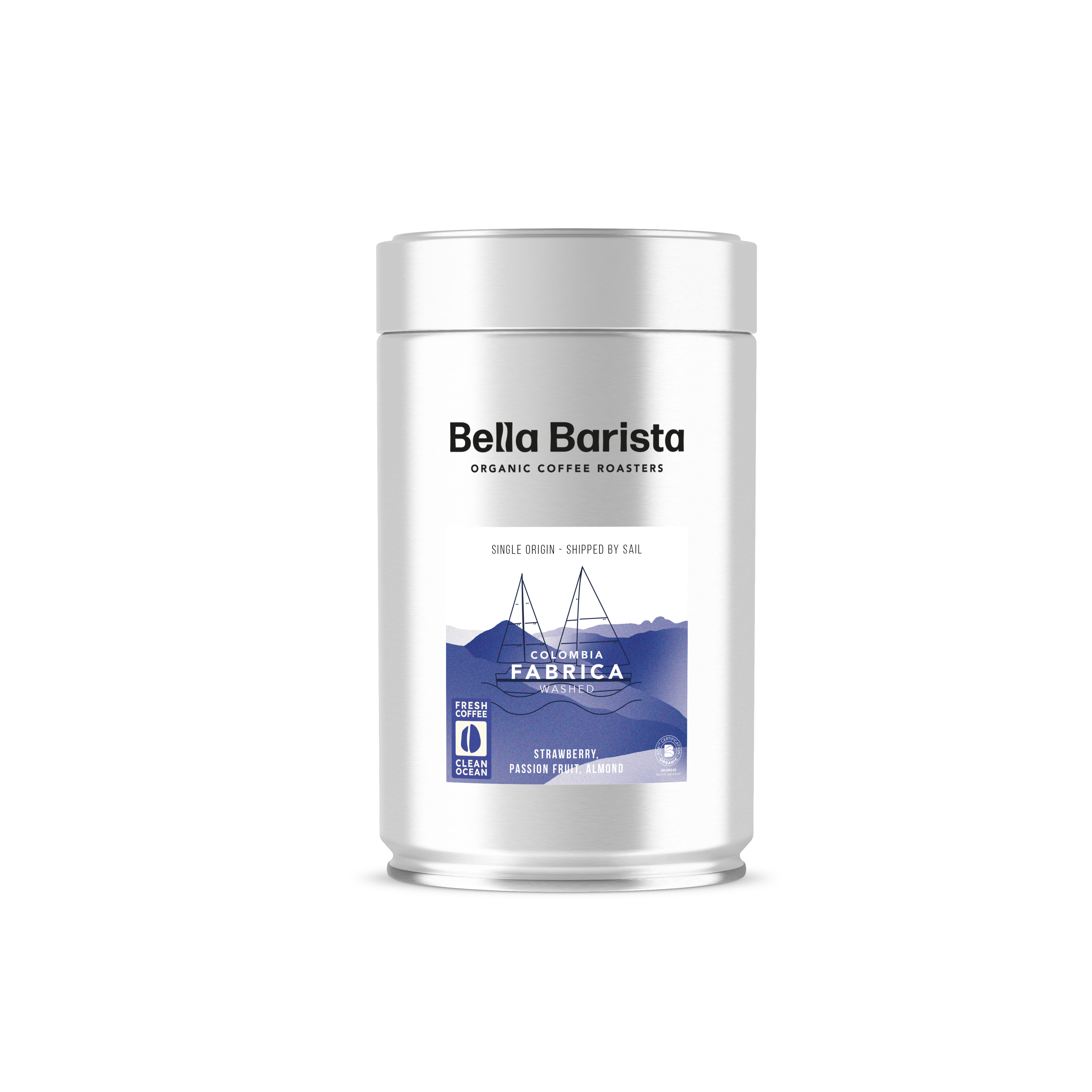
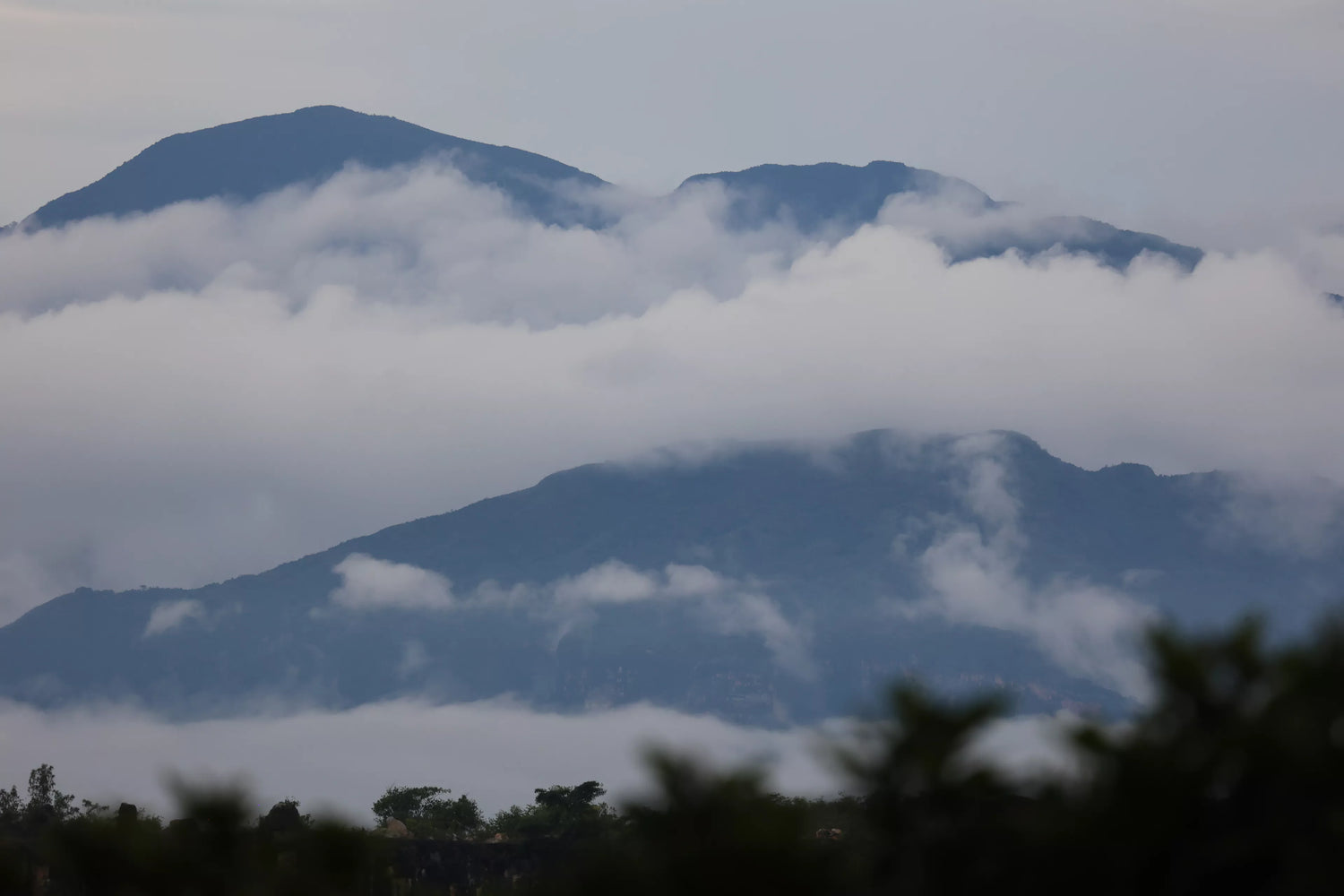
The coffee is produced by indigenous hands, high-altitude, and environmentally friendly. The varieties cultivated are well-suited to the climate and environment, resulting in highly productive and profitable plants. The producers also grow corn, beans, and staple food products intercropped among the coffee plants and in shaded lots. Harvesting depends on soil fertility, flowering, and fruit development. Collection occurs every 20 days, and thanks to the warm climate, there is year-round fruiting, with peak harvest periods in April, May, June, October, and November.
This coffee is from the Planadas area of Tolima. At altitudes ranging from 1600 to 2000 meters above sea level, the coffee grown in Planadas Tolima is truly special.The volcanic soil, combined with the fresh mountain streams, creates a unique terroir that imbues the coffee with a rich and full-bodied flavour.
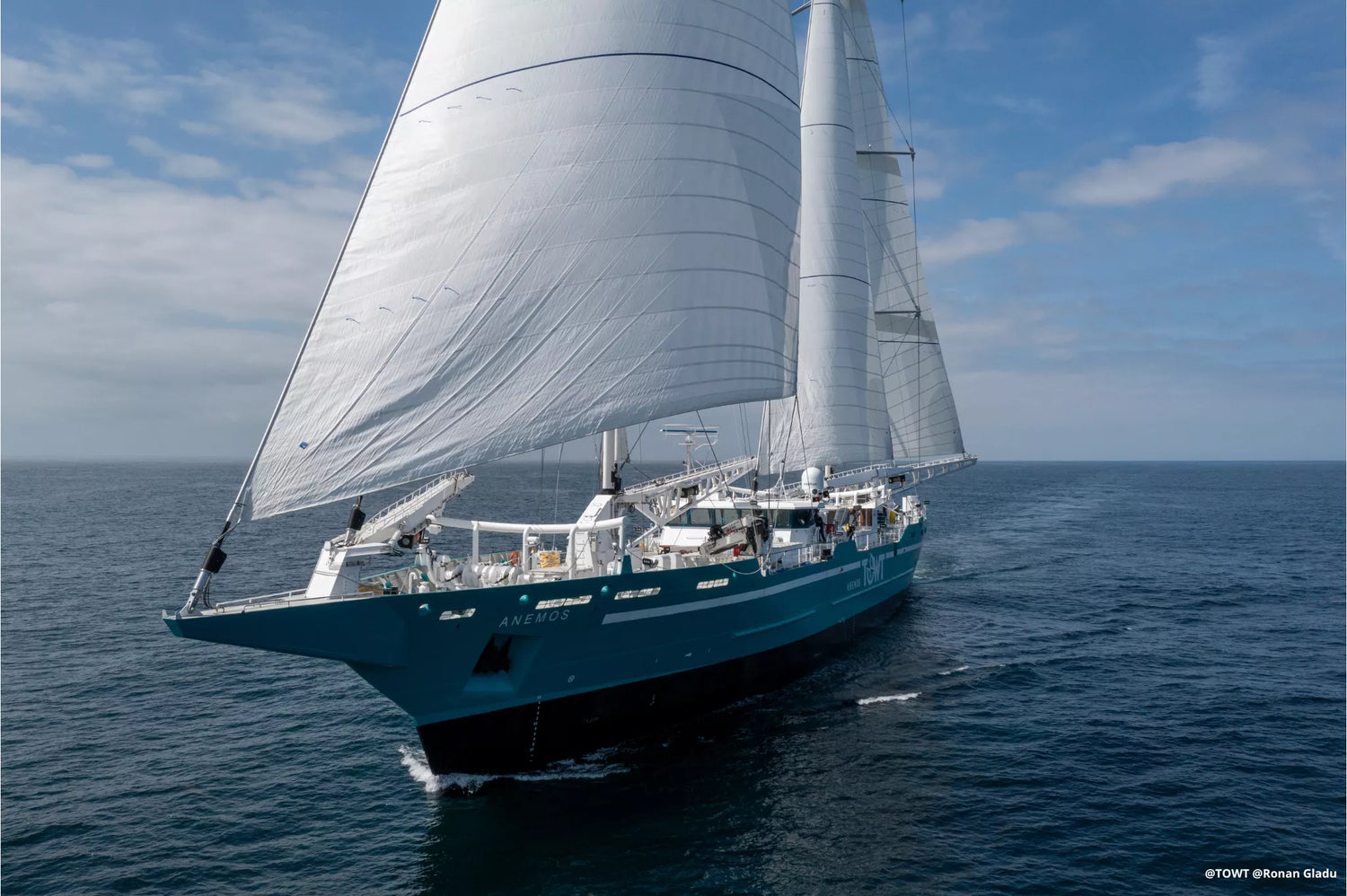
Why Coffee by Sail?
Eco-friendly transport that commits to:
REDUCE NOISE POLLUTION TO PROTECT MARINE WILDLIFE
Pollution and destruction of marine life: a conventional container ship generates twice as much noise as the authorised sound limit in a nightclub.
SWITCH TO RENEWABLE ENERGY
With conventional transport, we are dependent on the price of oil, freight rate and five gigantic shipping companies.
REDUCE CO2 PRODUCTION
If maritime transport were a country, it would be the 6th largest emitter of CO2 in the world


